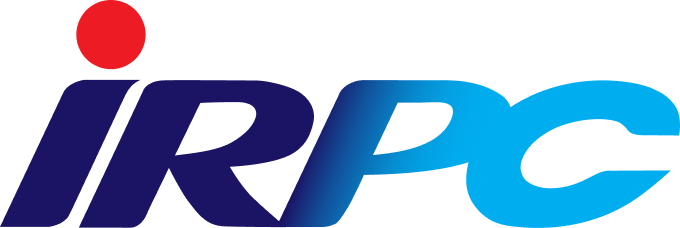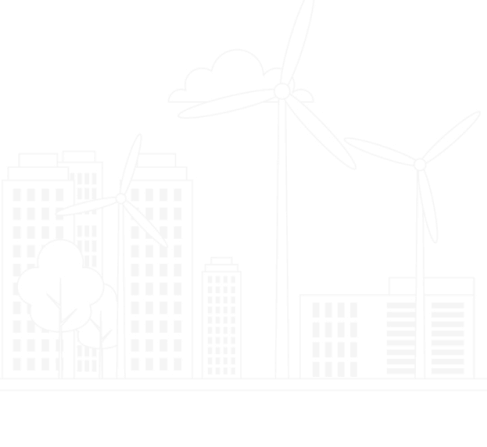


At IRPC, upholding human rights is an integral part of business operations and a responsibility shared by personnel at all levels, including the Corporate Governance Committee, the CEO and President, senior executives, and employees in all units in the organization. IRPC has formulated human rights strategies and action plans with the aim to prevent human rights violations and complaints related to IRPC’s operations and to encourage cooperation with various agencies in implementing human rights projects in accordance with the UN Guiding Principles on Business and Human Rights (UNGPs). In fostering our commitment to human rights, IRPC appoints dedicated individuals responsible for determining clear directions to support the implementation of human rights policy throughout the organization, promoting earnest and continuous efforts in human rights operations, as well as fostering the expansion of collaborative networks throughout the entire supply chain.
- Human Rights Policy and Commitment
- Human Rights Management Process
- Human Rights Due Diligence
- Human Rights Risks and Impact Assessment
- Human Rights Mitigation & Remediation
- Human Rights Award
Human Rights Policy and Commitment
IRPC has developed our Human Rights Policy in accordance with significant human rights frameworks at the international level. Introduced in 2017 and revised in 2021, the Policy has been officially signed by the Board of Directors.
Directors, executives, and employees across IRPC Group companies are to uphold labor and human rights laws, while honoring labor rights, women’s rights, children’s rights, and human dignity, as well as the liberty and equality of those certified by or protected under Thai and international laws. The policy extends to IRPC employees, subsidiaries, Joint Ventures (JVs), and business partners (suppliers, contractors, customers), considered as stakeholders. It also encompasses other stakeholders, including local communities, residents, and society, addressing vulnerable groups (children, person with disability, elderly, women, pregnant women, indigenous people, migrant people and LGBTIA+), who may be affected by the Company’s operations throughout the value chain, with the aim to protect and respect human rights and provide compensation for any violations.
IRPC has adopted the United Nations Universal Declaration of Human Rights (UDHR), International Labour Organization (ILO) Declaration on Fundamental Principles and Rights at Work and UN Guiding Principles on Business and Human Rights as the basis of our human rights practices in our business operations, encompassing respect for labor rights, women’s rights, children’s rights and human dignity, including civil liberties and equality of persons protected under Thai and international laws to enforce human rights and prevent human rights violations from IRPC operations throughout the supply chain.
Human Rights Management Process
IRPC has formulated a strategy of embedding respect for human rights in all processes throughout the value chain, based on 3 principles: Protect, Respect and Remedy. This is implemented through effective communication, awareness-raising campaigns, and network fostering.
- Protect involves applying human rights protection principles within the organization with emphasis on supervisory oversight through the policies of IRPC and our subsidiaries. IRPC’s human rights policy is communicated to all personnel in the organization, including suppliers, business partners and joint ventures. Additionally, comprehensive guidelines for the Human Rights Management System and the Human Rights Risk Assessment are developed to proactively prevent any human rights violations. Roles and responsibilities pertaining to human rights issues are clearly defined for committees, departments, and work units, ensuring thorough oversight for all stakeholders. These include the Board of Directors, Corporate Governance Committee, Risk Management Committee, Management, and organization development unit, etc.
- Respect involves demonstrating respect for human rights through the practice of Human Rights Due Diligence and the effective management of human rights in Supply Chain Management.
- Remedy involves providing remediation in case of human rights violations through complaint channels, witness protection measures, the establishment of procedures for rehabilitation and remediation of affected individuals.

Human Rights Due Diligence
IRPC is committed to a comprehensive due diligence process aligned with international standards to assess and address human rights risks and impacts within the organization. The systematic approach includes the following steps:
- Identification of relevant human rights issues: IRPC identifies potential human rights risks and impacts associated with business activities and relationships across the value chain, considering the following scopes: labor rights, community rights, supply chain, security and safety, environment, and customer rights.
- Identification of right holders: IRPC identifies right holders as employees, contractors, suppliers, customers, and communities with a particular emphasis on vulnerable groups such as children, person with disability, elderly, women, indigenous people, migrant laborers, third-party contracted labor and LGBTQIA+ who may be impacted by IRPC’s operations and are at risk of having their human rights violated.
- Human rights risks and impact assessment: Impacts and likelihood of human rights risks are assessed at the corporate level of own operation and throughout the value chain, including IRPC affiliates, controllable and uncontrollable joint ventures, and critical Tier 1 suppliers. The assessment process also includes the analysis of risk which is defined into 4 levels of risk impact (extreme, high, medium, and low level). The evaluated impacts at the medium to extreme level will be considered for relevant existing control functions within the organization to identify corporate human rights risks.
- Mitigation measures and integration: IRPC has concerns about appropriate mitigation measures to alleviate human rights risks. Hence, IRPC develops risk mitigation measures that align with different risk levels. These mitigation measures are integrated, minimized, and controlled to a low residual risk level at an acceptable level. Examples of mitigation measures include managing security, occupational health and safety of employees, and mitigating environmental impacts.
- Tracking and communication: The performance according to human rights mitigation measures is tracked, monitored and reviewed by responsible management teams annually to ensure human rights issues are rectified.
Human Rights Risks and Impact Assessment
Since 2018, IRPC has conducted a Human Rights Risk Assessment (HRRA) across the entire IRPC group, as along with an in-depth assessment of value chain throughout all business units. Additionally, starting in 2022, public consultations and human rights assessments for all new investment projects have been consistently conducted. The assessments are performed by relevant internal functions to ensure a comprehensive evaluation of human rights risks in IRPC’s operations and joint ventures (JVs) across the entire value chain. To facilitate this process, IRPC has developed a Human Rights Risk Assessment System on an online platform, streamlining data collection, analysis, and reporting to enhance the effectiveness and efficiency of the assessment process.
The HRRA process involves the identification of issues assessment of impacts on rights holders and vulnerable groups, and evaluation of the likelihood of these impacts. The assessed groups include various stakeholders such as employees within IRPC, society, subsidiaries, Joint Venture (JV) partners, and our business partners (suppliers, contractors, customers). Specific attention is given to vulnerable groups, including women, children, indigenous people, migrant people, third-party contracted labor, communities/residents, customer/consumer, LGBTQI+, person with disability, pregnant women, elderly.


Human Rights Mitigation & Remediation
Human Rights Risks in Supply Chain Management
IRPC communicates our human rights policy to critical suppliers and encourages strict adherence to these policies and practices. The Company assesses the suppliers’ compliance with human rights principles as outlined in the Code of Conduct on Human Rights and Labor Rights section of the Sustainable Procurement Handbook. To prevent child labor, IRPC verifies the qualifications and age of contractors before granting access to work sites. Additionally, training is provided to foster a safety mindset and ensure a safe working environment. Suppliers are required to participate in seminars on ESG disclosures and complete a self-assessment questionnaire, which includes human rights criteria, prior to ESG Onsite Audit.

Whistleblowing and Complaint Channels
IRPC has set guidelines for the creation of complaint channels and an efficient complaint handling process, including assigning a person to take responsibility for handling complaints as well as notifying the complainants of the decisions made to resolve their grievances. IRPC will appropriately address stakeholder concerns, including compensation, rehabilitation, apologies, and process improvements. Also, IRPC provides a secure and fair grievance mechanism, ensuring thorough investigation and resolution.

Human Rights Violations Cases Report
From 2021 to 2024, IRPC’s unwavering commitment to human rights resulted in the successful elimination of any reported cases of human rights violations, meeting the organization’s established objective.

Human Rights Award
IRPC was awarded in a Gold-Level Human Rights Model Organization. The consistent award-winning achievements reflects IRPC’s commitment to conducting business with a focus on 3 human rights principles of “Protect, Respect, Remedy”. IRPC places a strong emphasis on equality, equity and diversity, integrating these values into our operations. The recognition signifies a significant achievement for IRPC, reinforcing moral values among stakeholders, executive members, and staff, and highlighting the Company’s unwavering commitment to ethical business practices and innovative discoveries.


